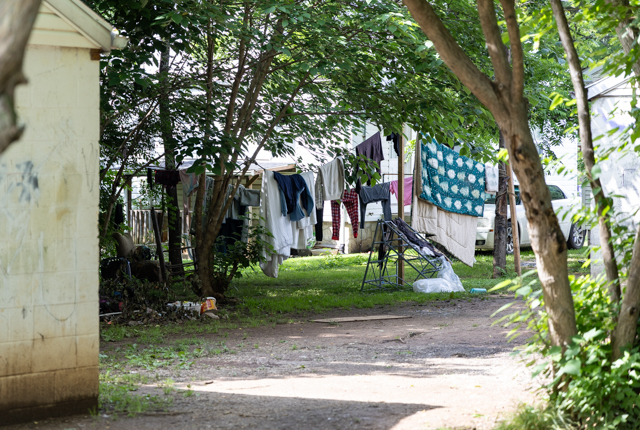The war on gossip
Published 12:00 am Friday, January 12, 2001
Imagine you awaken one morning to find a new shovel by your bed with an explanatory note that you can use the tool to dig either in a pile of diamonds or in a mound of trash. You get to keep whatever you dig up. That choice is impossibly easy. Yet a growing number of people say we are faced with a similar choice every day and too often we choose wrongly. Instead of digging for the diamonds, wed rather dish the dirt. What someone said, what someone did, what someone wore, what someone heard talking about others is a staple of most interpersonal relationships. If we didnt gossip, what would we talk about?Whether you begin biblically with the serpent in the garden or choose to start at another point in time, gossip runs through all of the worlds religions and people. In events going back thousands of years, gossiping and the spreading of rumors have been blamed for wars, murders and political mayhem. A passage in the Talmud, the collection of writings constituting Jewish civil and religious law, says the Romans destruction of Jerusalem in 70 A.D. was sparked by lashon hara, a Hebrew term that literally means evil tongue. Now, scattered efforts to curb gossip, negative speech and rumor-mongering have begun in Philadelphia, St. Louis, Miami and Cleveland, where people are brandishing bumper stickers (Put the brakes on lashon hara) and speaking publicly about the importance of proper speech and increased civility. Its been an historic problem; this started in biblical times, said Rabbi Chaim Feld, a teacher in Cleveland and the creator of the program Words Can Hurt. Words Can Heal through Aish HaTorah, a Jewish educational group. The name of the program is based on a 1996 book by Rabbi Joseph Telushkin. Aside from a severe illness, the deepest pain is caused by words, Feld said. People really have to be aware of the power of their words. Everyone knows they shouldnt gossip. The first logical step is to make a commitment be it 15 minutes a week or an hour a week where theyre really going to be conscious of their words, that theyre not going to gossip during that time. Feld represents only one of the most recent anti-gossip efforts. Both the Old Testament and the New Testament contain numerous admonitions against false rumors and tale bearing. In 1873, Rabbi Yisroel Meir Kagan of Poland wrote Chofetz Chaim, still considered the seminal work on the concepts and laws of proper speech. The title comes from the phrase in Psalms 34: Who is the man that desires life (chofetz chaim) … keep your tongue from evil. Four years ago, two friends at Columbia University began a Web site called Guard Your Tongue, on which they posted specific non-lashon hara hours. And there is the nonprofit Chofetz Chaim Heritage Foundation in Monsey, N.Y., which is devoted to creating books, audio tapes, screen savers and e-mail services to improve the quality of peoples speech. Foundation director Michael Rothschild compares it to installing new software between peoples brains and mouths. This software analyzes the words theyre going to speak and carefully deletes the harmful words they were going to use, he said. Proper language is a habit that has to be practiced. Just wishing it doesnt make it happen. Essentially, any statement that hurts someone physically, emotionally or financially is considered gossip or slander, and that includes derogatory statements that may be true, cutting repartee, caustic rebukes and mockery. Rothschild recommends that people initially try spending one hour a day not gossiping, and then gradually increase the length of time. The potential for change, he said, is tremendous, given that people may have a hundred conversations daily. If you nail this issue, he said, you will nail turning yourself into a better person. Words have awesome power. But the battle against gossip has been a long and mostly unsuccessful one, partly because its such a fixture of human communication, according to Dan Santoro, an associate professor of sociology at the University of Pittsburgh-Johnstown. People have always gossiped, he said. Maybe, at one time, gossip was news if you lived in a village and there were no formal channels for disseminating information. In pre-industrial societies, he said, relationships were based on customs and traditions. What was really important, Santoro said, was your reputation. The fear of your reputation being questioned kept people in line. In our society right now, it has just become a big industry. Your personal reputation isnt as important as it used to be.






